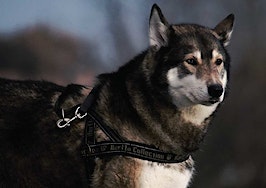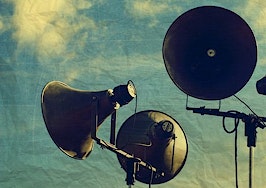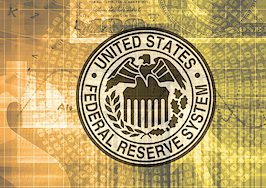Bruno Ricciotti is the co-founder of Bond New York.
Age: 42
Degree, school: Bachelor of Arts in Communications, Penn State University
Location: New York City
Social media: Facebook, Twitter, LinkedIn, Instagram, Pinterest, Google Plus
What’s your favorite activity outside of work and why?
I live for exercise boxing, swimming, yoga, racquetball. My favorite was always Rollerblading, particularly because it’s like becoming a completely different species. The whole physics in the way you move, the speed, the sense of control. It shrinks the world around you, making everything more accessible and more inviting.
I make my journey from one place to another a performance art on a moving stage. Every nuance to the path chosen is as unique as brush strokes on a canvas. I particularly enjoy Manhattan traffic. It’s an especially enjoyable obstacle course. Cars and buses are lumbering, but there are also bikes, tourists, baby carriages and dogs on leashes all mashed together. There is nothing more challenging or dynamic and yet it’s almost always available; you do not need to drive to the beach or a mountain. You need to be very alert or you can be seriously injured or die, so it really brings out your absolute best.
What’s your favorite classic piece of literature and why?
I don’t know if I have a favorite classic. I like Malcolm Gladwell, Michael Crichton, Kurt Vonnegut and Chuck Palahniuk. Gladwell digs and finds patterns within the layers of things to bring a deeper understanding of the world to the reader. Crichton teaches important lessons in science by weaving them into fictional adventures; Vonnegut is like jazz; and Palahniuk is just deep and dark.
Are you the first entrepreneur in your family?
First ever? I doubt it. I am sure there were a few old-school relative entrepreneurs who emigrated to the U.S., but I believe I am the only current business owner.
Why’d you decide to join your company?
I didn’t join it; I created it along with my partner and best friend from high school. We always wanted something that was ours, our own work of art, made our way. I never could keep a job; there were no stakes in it. I think we both knew deep down we wanted to create and build something cool that defined us and lived on its own.
Describe a time when you felt particularly insecure about the future of your company. How did you bounce back?
Um … How about September 2008? We trimmed the fat, then trimmed some more, then we did our own internal stimulus package, and then we vultured the carcasses. It was terrifying at first because no one knew how deep or how long it would last. It was unprecedented in our lifetime. People were saying there could be shantytowns again in Central Park. The good news was that everyone was in the same position. Even the banks we had credit with needed help, so no one moved against one another, and we worked gradually to get out of the mess together.
What would you describe as your company’s biggest victory since you started it?
Making it through two recessions in our first decade.
What’s been the biggest obstacle your business has encountered, and how have you dealt with it?
The Internet. We started in 2000 and immediately dealt with the dot-com bust. What started as an information business evolved into a customer service business. When we started, there was not enough information, and we facilitated that — then, suddenly, there was too much information. We went from running 10 ads in The New York Times print section for our weekly marketing to managing and updating thousands of property listings from hundreds of agents with descriptions, photos and floor plans, daily. It’s a lot more work :).
We survived and actually excelled by adapting relentlessly, by never being complacent, and by constantly questioning and reassessing our current business model through procedural and technological innovations.
What puzzles you most about the industry?
Nothing puzzles me about the industry. At this point, I swear I have seen it all.
What is the most important lesson you’ve learned about building a business?
To relax and have fun. It maybe sound cliche to say it’s about the journey and not the destination, but it’s true. When I was early in my career, I had very high expectations of myself and others, and while that drive produced results, it didn’t produce happiness. I made myself crazy — and oftentimes the people I worked closely with, too. One day it, just dawned on me that if I wasn’t enjoying myself, then I wasn’t successful, despite what others may have thought. I learned to let go and detach from my expectations. Even if you don’t achieve what you expected, if you enjoyed the process, that’s something no one can take away from you.
What’s the most overrated real estate technology?
I find all real estate technologies to be gimmicks of one form or another that tend to make more of an impact in getting momentary attention in their press releases than in actually changing the industry in any substantial way.
How will the role of the real estate agent change over the next five years?
I believe real estate agents will continue to become more specialized and sophisticated. It’s just a symptom of ever-increasing transparency. As an example, our new website will have search criteria to match agents with customers via an agent’s hometown, alma mater and lists of hobbies, in addition to the standard foreign language and area of expertise.
What motivates you more: power or money?
They are the same thing, and neither motivate me much. As I mature, I find myself being motivated by comfort.
What is your biggest professional fear?
That New York City will end up underwater, literally.
What is your biggest personal fear?
Losing my mind, losing my body, being trapped or being isolated are all pretty terrifying.
Whom do you respect most in the industry?
My business partner, Noah Freedman.
Are you a real estate leader who would like to participate in our profile series? Email amber@inman.com.









